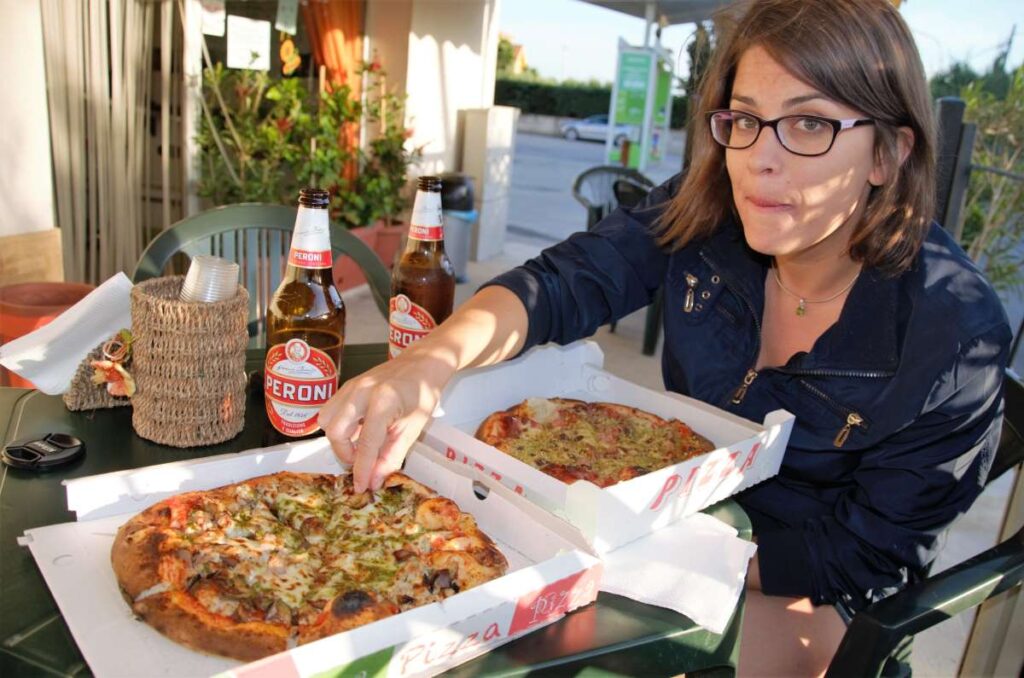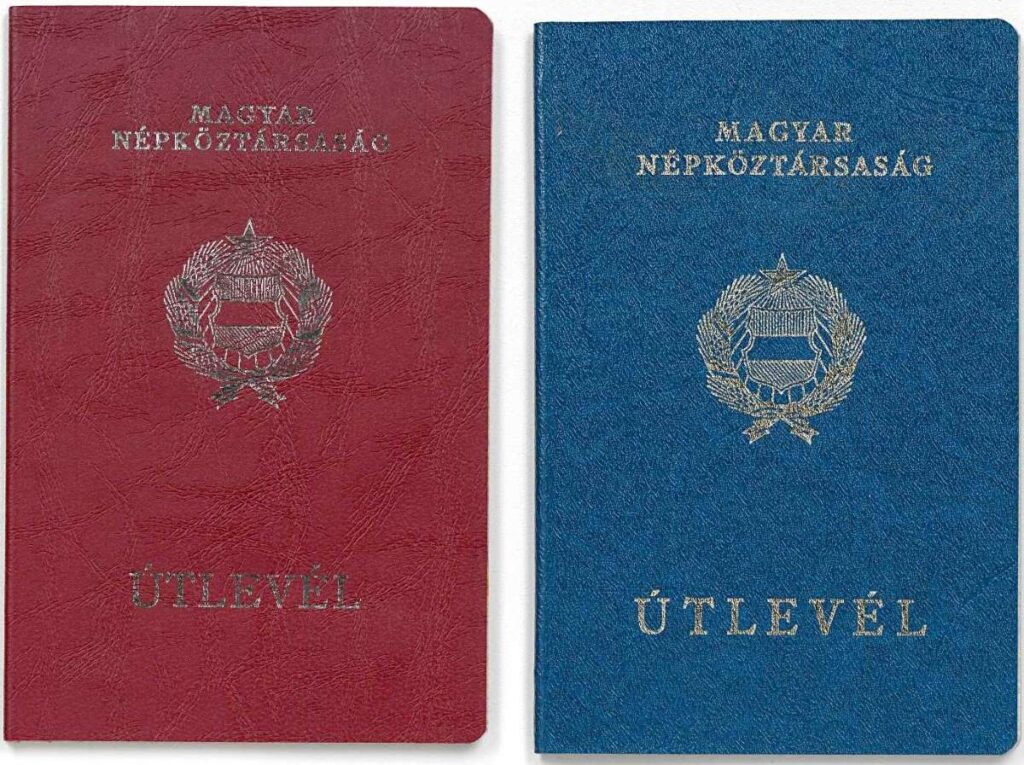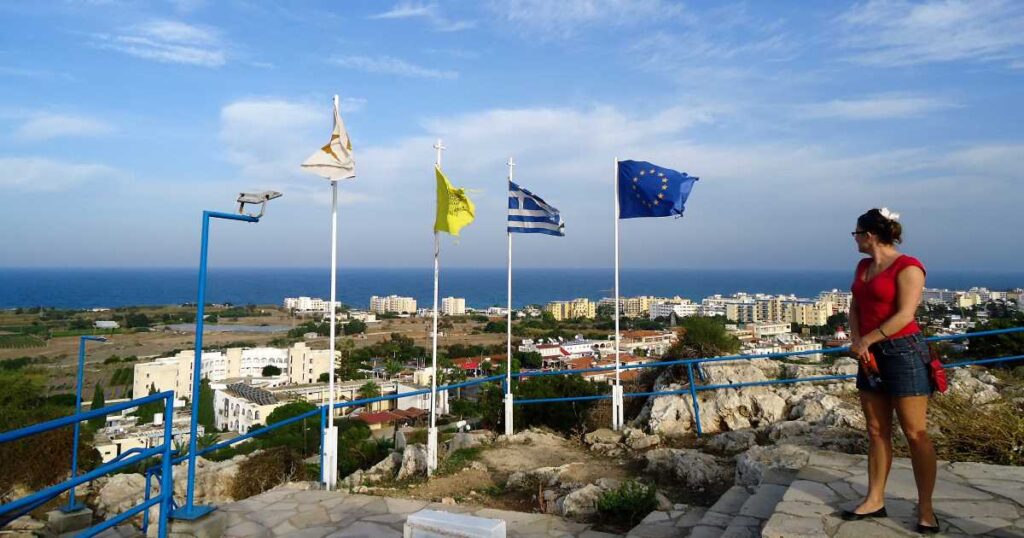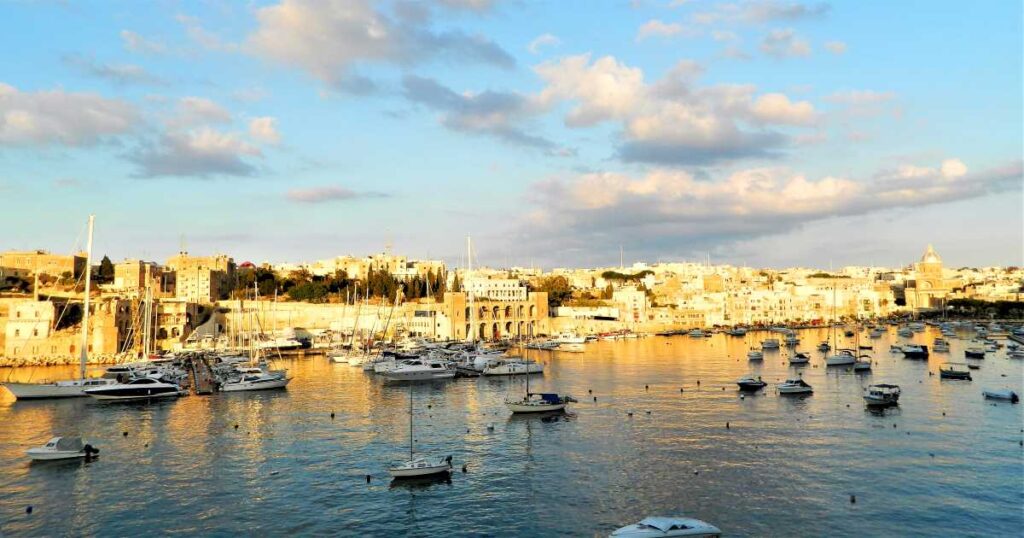
My name is Ildiko. My trade is teaching, my passion is traveling, my current occupation is nurse/ teacher/ cook/ cleaner/ psychologist/ storyteller/ driver/ gardener (stay-at-home mom, duh) of two military brats.
At the age of 30, I quit my job and moved from my home country, Hungary.
10 years, 6 countries of residence, 1 marriage, 2 children, 11 jobs, 16 moves, and 34 visited countries later, I still have a passion for discovering new areas.
The focus of this blog
Visiting the most beautiful places on our planet? Sure thing. Checking off the Top 10 sights of any destination in the world? Why not? Sipping Caipirinhas while our kids run around on the beach? Oh yeah!
However, what I personally enjoy most about traveling is encountering locals. Listening to stories and learning about different customs, habits, local characteristics.
The little things that you laugh at when you are a tourist but frustrate you when you are an ex-pat.
An example of culture shock
For instance, when you are in Italy for the first time, you probably notice that seemingly every single person stands in bars, having their coffee. You probably find it charming.
But imagine that you live in Italy, as a non-Italian, and say, you would like to run an errand, like subscribing for the internet service. And you are told that the person in charge is having a coffee break. Just like yesterday. And on all the other occasions you wanted to contact him. Then, you want to pull your hair out. Like, c’mon dude, how much coffee can you possibly drink?
If you spend a long enough time in Italy, you will become the dude on a coffee break. Standing in bars will become your second nature, too.
This phenomenon is called culture shock, and it has stages. You are in a foreign country, and first you find the local characteristics lovely, then annoying, and then you get used to them.
What is culture shock
Culture shock is caused by the tiny nuisances, the strange habits, the quirky customs, the absolutely random notions that are different from what you are used to. These differences are not weird or bizarre, they are beautiful. They intrigue me the most during travel.
Hence, the motto of this blog is “Culture Shock in a Shockingly Uncultured Manner.”
The name of the blog
With Travel with Meme, I intended to refer to myself, as in “travel with me.” It also relates to our children, and specifically our second son, whose nickname is Meme (pronounced Meh-Meh). It refers to travel memes, too, which are perfect tools to introduce a surprising or odd novelty that I constantly encounter during my expatriate life.
Just a small-town girl
Livin’ in a lonely world
She took the midnight train
Goin`anywhere
(Journey – Don`t Stop Believing)
Are you still with me?
I’m glad, so let me ramble about my life story a bit.
I was born and raised in a city in Northeastern Hungary. Lonely Planet wrote about my hometown that it is in itself not worth a visit. It is only a transport hub for discovering the region.
I was a kid during a time what we now jokingly call ˝the anti-world˝, i.e. the era of socialism.
Those days, two different passports existed. It is unthinkable today, but we could only travel every three years. The red passport was for to the socialist countries, and the blue one was for the West. The other ˝friendly socialist countries˝ were, for example, Yugoslavia, Czechoslovakia. Countries that do not even exist anymore. There were also times when someone was simply not allowed to travel to Western Europe or the US.

Wanderlust is in my DNA
My dad once spent a day in jail because he was hiking close to the country border. The authorities thought that he wanted to defect from Hungary.
Nevertheless, he and my mom later traveled to Thailand, Italy, and Cuba. Traveling to these places was considered as ambitious back then as a trip to the Moon. My parents could organize these journeys, regardless.
The trip to Thailand, for instance, was preceded by months of preparation. First, they frequented the Russian embassy until they received a visa to Russia. Then, they started their trip to Moscow. Here, they spent a couple of days at the Vietnamese embassy, where they finally got a visa. After, they traveled to Hanoi, spent some time there, and successfully applied for a Thai visa. And only then could they go to Bangkok and Pattaya.
Today, if you have money, you click around booking.com, and you organize a trip like that in an hour.
My parents were my main inspiration for becoming a globetrotter as an adult.
Into the wild
After the regime change of 1990, I finished school and university and landed a job, as a high school teacher, in my hometown.
Now comes the part when I wish I could say something catchy and Insta-worthy about leaving the gruesome 9-5, selling all my belongings, setting off on a life-transforming journey, and finding spiritual completeness.
Sorry to disappoint you, but I actually liked my job. I did not have any belongings to sell, either. I quit so I could make more money than the average salary of a full-time high school teacher with 2 MAs, which was around the equivalent of 400 dollars.
Culture shock examples in my life
Cyprus
My first destination was Cyprus, where I first stayed with a friend. She helped me find a job and an apartment.
Looking for a job in the resort town of Protaras involved walking into businesses and asking if they needed help. No CVs, cover letters, interviews with HR, just some chit-chat with the manager. It was in 2012. I found a job with this revolutionary method within two hours.
I worked as a hotel receptionist and as a waitress.

At this point, I realized that this journey was indeed life-transforming. The high-school teacher was now cleaning tables, making cappuccinos, and handling guest complaints. I often felt that my situation was humiliating. The guests sometimes treated me as inferior or dumb because I speak English with an accent, and I am not familiar with English Premier League teams.
But: what doesn’t kill you makes you stronger.
I learned that treating others inappropriately because of their background and interests is utterly and inherently wrong.
This was the first time when I felt culture shock in my bones.
I loved how beautiful Cyprus was and how easy-going the people were. But I hated that I did not know the language, the culture, the people, the customs.
Malta
Next year, I found myself on another Mediterranean island, between Sicily and Tunisia.

I could fit in with Malta relatively easily. The culture shock was not so bad because the island has a very international vibe. Expatriates comprise around 15 percent of Malta’s population. It is popular among British retirees and young people all over from the EU looking for jobs in the tourism industry, online betting, and TEFL (Teaching English as a Foreign Language). I have around zero interest in spectator sports, and online betting is not for me. However, I found a job as a waitress and later as an English teacher.
Malta was the place where I met my husband.
Italy
My husband’s job requires frequent relocations. Following him, I moved to Northern Italy from Malta.
Here, we spent an extremely chaotic year. We traveled a lot, and we were frustrated by the red tape encompassing our wedding. Believe me, there is a lot of paperwork when you are a Hungarian citizen, your husband is half Dutch-half American, you live in Italy, your telephone number is still Maltese, and some validating pin code for your transactions is sent to your long-lost Cypriot telephone number. And all this chaos is handled by the above-mentioned guys who are never available because they always go to bars instead.
I also got pregnant, so I spent a lot of time at doctors’ offices.
South Korea
With a bun in the oven, we moved to the other side of the world.
And here, culture shock hit me with full force. Everything was unfamiliar. After the cobblestoned Venetian town, we were now in the bustling metropolis of Seoul. Noise everywhere: a thrum of K-Pop from every store, traffic lights make announcements, the garbage dumpsters talk. I did not understand any of it. In the beginning, I could not even read the Korean script, the Hangeul alphabet.
But eventually, the two years in South Korea turned out to be the time of my life.
This is how I said farewell to Daehan Minguk on social media:
So long, and thanks for all the fish. (And live octopus, kimchi, fermented soybean, and all the weird foods that I first found unpalatable, but now I miss.)
Also, gratitude for the love and kindness from ajummas and ajussis to our little one, who was born here.
I will yearn for the rare clear days, which turned the parks of this metropolis technicolor green.
Goodbye loud noises, K-Pop, talking elevators, and garbage dumpsters, which I do not find annoying anymore.
I will miss the work ethic and effectiveness of Korean people. They make health care and services incomparable to anywhere else in the world.
And, of course, the strange beauty products with snail slime, bee venom, and other delicacies, which I cannot imagine my life without anymore.
Germany
A couple of weeks after moving to Germany, surprise, I was pregnant again.
We bought a house, so I spent two years learning how to paint, plaster, tile, build fences, design gardens, working with fittings and fixtures…
We were relatively lucky because Covid hit when we were almost ready with our house, and we could spend the lockdown in our safe little town.
Our second son was born here. This blog is named after him, as his nickname is Meme.
Shocking culture shock, not you again…
The moves (intercontinental and local) add up. I have moved 16 times in 9 years. During each one of them, I got rid of stuff, and I have become a minimalist.
I do a lot of paperwork every time, so bureaucracy takes up a lot of my time. After a move to a new country, our family has to settle in new jobs, schools, environments. We have to learn a new language.
When we travel, we always create confusion at the check-in counter because the four members of our family have four different countries of birth. My husband’s and the kid’s citizenship account for a 5th country. We are an American-Dutch-Hungarian-Korean-German family. No matter how early we arrive at the airport, we are always the last ones to board the plane because of the confusion.

